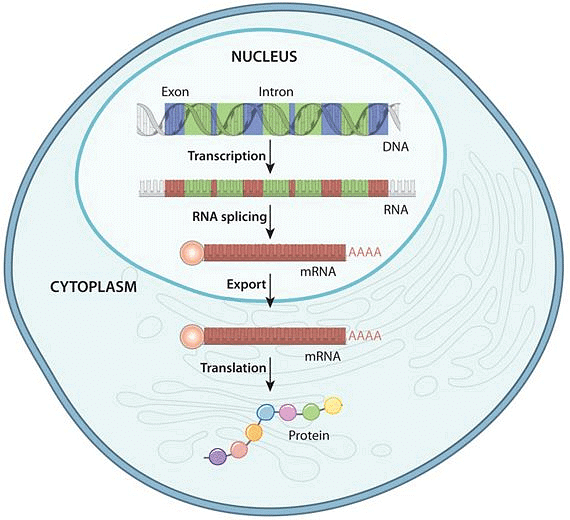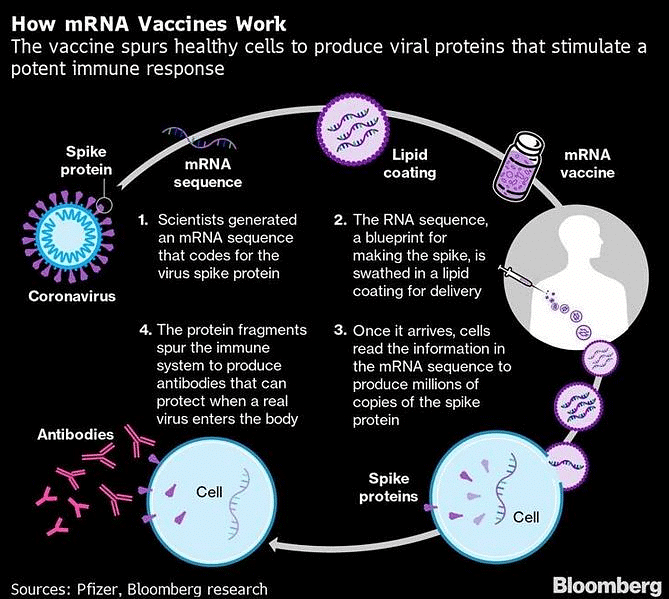UPSC Exam > UPSC Notes > Current Affairs & Hindu Analysis: Daily, Weekly & Monthly > The Hindu Editorial Analysis - 4th October 2023
The Hindu Editorial Analysis - 4th October 2023 | Current Affairs & Hindu Analysis: Daily, Weekly & Monthly - UPSC PDF Download

The trouble with a Nobel for mRNA COVID vaccines
Why in News?
The 2023 Nobel Prize for Physiology or Medicine has been awarded to Katalin Karikó and Drew Weissman for developing the mRNA vaccine technology that became the foundation for history’s fastest vaccine development programme during the COVID-19 pandemic.
- Katalin Kariko and Drew Weissman, the 2023 medicine Nobel laureates, have earned acclaim for their groundbreaking contributions to the field of mRNA technology.
- Their work has transformed our understanding of mRNA’s interaction with the immune system, leading to the rapid development of vaccines, particularly during the Covid-19 pandemic.
What is mRNA?

- Messenger RNA (mRNA) is a single-stranded RNA (Ribo Nucleic Acid) molecule that is complementary to one of the DNA strands of a gene.
- The mRNA is an RNA version of the gene that leaves the cell nucleus and moves to the cytoplasm where proteins are made.
- During protein synthesis, an organelle called a ribosome moves along the mRNA, reads its base sequence, and uses the genetic code to translate each three-base triplet, or codon, into its corresponding amino acid.
What are mRNA vaccines?

- Such vaccines make use of the messenger RNA molecules that tell the body’s cells what proteins to build.
- The mRNA, in this case, is coded to tell the cells to recreate the spike protein of the coronavirus SARS-CoV-2, which causes Covid-19.
- It is the spike protein — which appears as spikes on the surface of the coronavirus — that initiates the process of infection; it allows the virus to penetrate cells, after which it goes on to replicate.
- A coronavirus vaccine based on mRNA, once injected into the body, will instruct the body’s cells to create copies of the spike protein.
- In turn, this is expected to prompt the immune cells to create antibodies to fight it.
- These antibodies will remain in the blood and fight the real virus if and when it infects the human body.
What are other types of vaccines?
(1) Vector vaccine:
- In this type of vaccine, genetic material from the COVID-19 virus is placed in a modified version of a different virus (viral vector).
- When the viral vector gets into your cells, it delivers genetic material from the COVID-19 virus that gives your cells instructions to make copies of the S protein.
- Once your cells display the S proteins on their surfaces, your immune system responds by creating antibodies and defensive white blood cells.
- If you later become infected with the COVID-19 virus, the antibodies will fight the virus.
- Subunit vaccines include only the parts of a virus that best stimulate your immune system.
- This type of COVID-19 vaccine contains harmless S proteins.
- Once your immune system recognizes the S proteins, it creates antibodies and defensive white blood cells.
- If you later become infected with the COVID-19 virus, the antibodies will fight the virus.
Back2Basics: Ribo Nucleic Acid (RNA)
- RNA is an important biological macromolecule that is present in all biological cells.
- It is principally involved in the synthesis of proteins, carrying the messenger instructions from DNA, which itself contains the genetic instructions required for the development and maintenance of life.
- In some viruses, RNA, rather than DNA, carries genetic information.
- The type of RNA dictates the function that this molecule will have within the cell.
- Aside from the coding region of messenger RNA (mRNA) molecules that will be translated into proteins, other cellular RNA elements are involved in different processes.
The document The Hindu Editorial Analysis - 4th October 2023 | Current Affairs & Hindu Analysis: Daily, Weekly & Monthly - UPSC is a part of the UPSC Course Current Affairs & Hindu Analysis: Daily, Weekly & Monthly.
All you need of UPSC at this link: UPSC
|
63 videos|5408 docs|1146 tests
|
FAQs on The Hindu Editorial Analysis - 4th October 2023 - Current Affairs & Hindu Analysis: Daily, Weekly & Monthly - UPSC
| 1. What is the Nobel Prize and why is it significant? |  |
Ans. The Nobel Prize is a prestigious international award given annually in several categories, including Physics, Chemistry, Medicine, Literature, Peace, and Economic Sciences. It is significant because it recognizes and honors individuals or groups who have made outstanding contributions in their respective fields, leading to significant advancements or positive impacts on society.
| 2. Why are mRNA COVID vaccines being considered for a Nobel Prize? |  |
Ans. mRNA COVID vaccines are being considered for a Nobel Prize due to their groundbreaking development and effectiveness in combating the COVID-19 pandemic. These vaccines utilize messenger RNA technology to instruct cells to produce a harmless piece of the virus, triggering an immune response. The rapid development, high efficacy, and global impact of mRNA vaccines have garnered widespread attention and recognition.
| 3. What are the potential benefits of awarding a Nobel Prize for mRNA COVID vaccines? |  |
Ans. Awarding a Nobel Prize for mRNA COVID vaccines can bring numerous benefits. Firstly, it can acknowledge the immense scientific achievement and encourage further research and innovation in the field of mRNA technology. Secondly, it can raise awareness and public trust in the safety and efficacy of these vaccines, potentially increasing vaccination rates and saving more lives. Lastly, it can inspire and motivate scientists and researchers to continue developing groundbreaking solutions for future pandemics or medical challenges.
| 4. Are there any challenges or controversies surrounding the idea of a Nobel Prize for mRNA COVID vaccines? |  |
Ans. Yes, there are some challenges and controversies surrounding the idea of a Nobel Prize for mRNA COVID vaccines. Some argue that it may be premature to award a Nobel Prize as the long-term effects and durability of these vaccines are still being studied. Additionally, there are concerns about intellectual property rights and fair distribution of vaccines in low-income countries. These issues need to be addressed and resolved to ensure a fair and equitable recognition of the mRNA vaccine's contributions.
| 5. Has the Nobel Prize been awarded for vaccines or medical breakthroughs in the past? |  |
Ans. Yes, the Nobel Prize has been awarded for vaccines and medical breakthroughs in the past. For example, in 1954, the Nobel Prize in Physiology or Medicine was awarded to Albert Sabin and Jonas Salk for their development of the polio vaccine. Similarly, in 2008, the Nobel Prize in Physiology or Medicine was awarded to Harald zur Hausen for his discovery of human papillomavirus (HPV) which led to the development of vaccines against cervical cancer. These examples highlight the Nobel Prize's recognition of significant contributions in the field of vaccines and medical advancements.
Related Searches
















